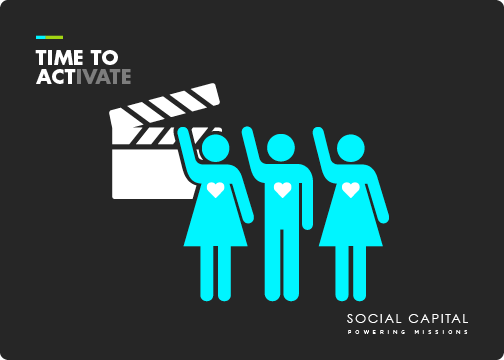Enough Talk, It’s Time to Act
On September 20th, youth activists around the world gathered for a global climate strike. These young people made headlines both locally and nationally when they took to the streets. But they weren’t alone. Many businesses joined the cause, closing their doors in solidarity with these young people.
As I walked passed my local Patagonia store I saw signs in the window reading “If Earth is broke fix it,” with a disclaimer about their late opening time. I couldn’t help but note how different this form of corporate social responsibility felt than the more “traditional” approach of generations past.
A shifting strategy
Just the month before, Business Roundtable released a statement redefining the purpose of a corporation. All 181 CEOs who signed pledged to structure their companies in a way that would ensure equal benefit for all stakeholders - including customers, employees and communities.
There’s no denying this statement was positive and much needed. However, it left many people - myself included - wondering was this social activism or a well-intended memo?
JPMorgan Chase was one of the first to prove that it was more than just a statement with the announcement of a plan to hire ex-offenders. This commitment is remarkable, and time will tell if others will follow suit.
Nothing’s off-limits in today’s economy. Corporations are contributing to conversations that previously seemed too delicate to discuss, enabling a more “human” type of engagement with consumers. Where there is hesitancy to take a more public stance, it often comes from a fear of monetary and social repercussions. However, we’re seeing record rates of political and social activism rivaling that of the ‘60s and ‘70s, so one could argue that a refusal to transform comes at a greater cost.
When there is a price to pay, it’s often temporary. Take Dick’s Sporting Goods' decision to discontinue the sale of certain firearms in the wake of the Parkland shooting in 2018. While the move initially caused the brand to take a financial hit, a year later it appears that this and subsequent decisions about firearm sales have seen success.
New expectations
Data shows that young consumers not only want to engage with businesses in more of an authentic, interpersonal way than generations past - they demand it.
In a 2018 study, Engage for Good reported that 67% of young people between the ages of 13-25 years old have stopped purchasing or would consider not purchasing from a company that stood for something or behaved in a way that didn’t align with their values.
Young consumers are not afraid to hold companies responsible by voting with their dollars. By 2020, 2 in 5 customers will be Gen Z. With that much purchasing power at stake, the time for businesses to act is now.
Ensuring there is "there there"
It’s important to remember that the wave of consumer demand also comes with an undercurrent of skepticism. Customers won’t hesitate to call out a company if they feel they’re veering too far toward a social impact focus without anything significant to back it up.
Corporations need substantive partnerships in order to deliver on the changing demands of young consumers. To attract the type of partnerships with nonprofits and other businesses that will help build momentum for today’s pressing issues, business leaders have to go into these conversations as both a peer and an expert.
As you’re determining how to best position your company to do this, consider a few things before moving forward:
Determine your unique value
What skill set, connections or expertise can your organization bring to the table? What exceptional point of view or resources does your team have to contribute? It’s important to have a clear understanding of what you, and only you, can offer as a partner.Establish your essential role
Once you have internal clarity and alignment around your value add, it’s time to help potential partners understand why your organization is best suited to support them in achieving their goals.Lead with impact
Don’t be afraid to reference how you’ve already begun adopting this approach and the outcomes you’ve seen from boldly paving your own way. If you don’t, you’ll be on people’s radar for “yoga babble” and seem out of touch with the bottom line.
At the end of the day, corporations are still in the business of making money. While it’s vital to not lose sight of that, it’s equally important to have a clear understanding of the issues that your organization should be stewarding. If you don’t, you risk your company being viewed as outdated, or even obsolete, to the next generation.

